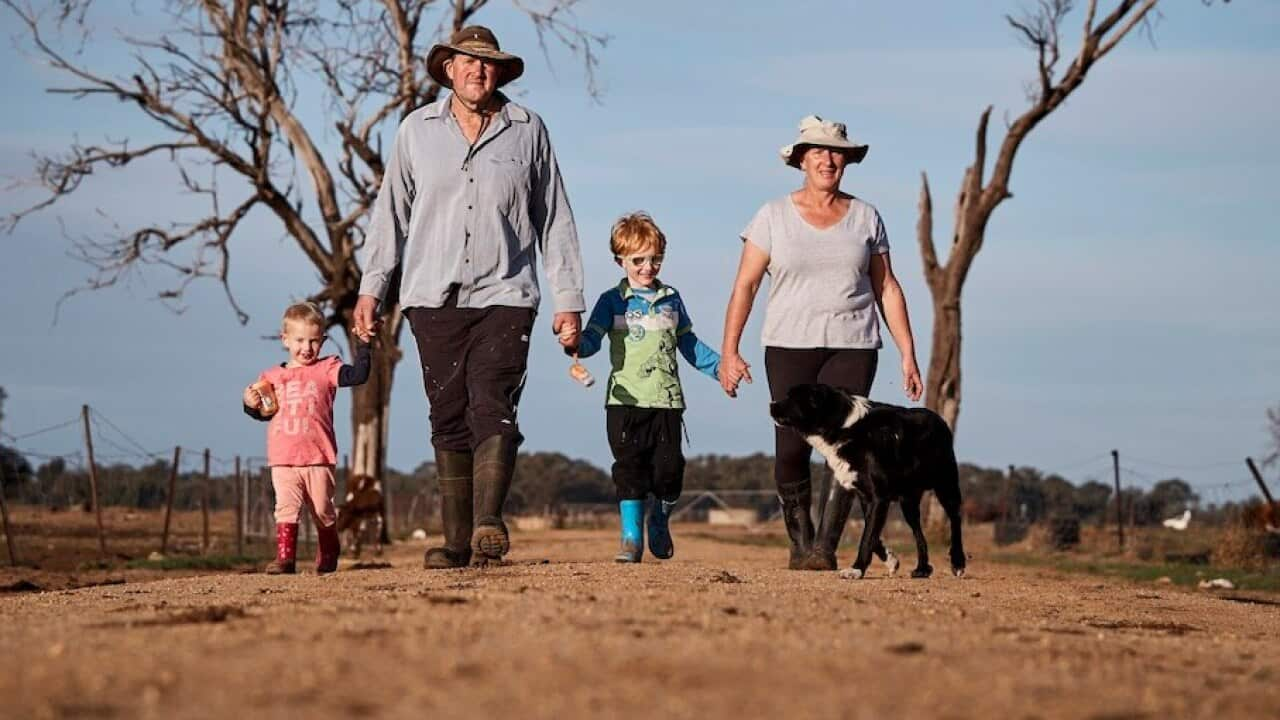By the time many of us reach our 70s, we’re most likely to have accumulated a life full of social connections and homely objects.
But Bob, 72, doesn’t have a wide network of friends, a mass of possessions, or a permanent home. He has spent the last 41 years of his life squatting, moving from place-to-place, sheltered by a tent.
Bob has resisted ever moving into a permanent home. Just like a free bird, being trapped inside a home makes him feel caged. He shares his struggles with the concept of home in the new series of Struggle Street on SBS. All he ever knew as a child was a mother who abandoned him.
“I was seven-years-old when I went in,” Bob explains on Struggle Street season three. “My mother decided she would get rid of us. She packed all our gear [in the car] one Saturday afternoon and said we are going on a long drive. Then she parked inside the car park inside the boy’s home, grabbed me by the arm and said ‘come on you little bastard’ and dragged me.
Image
“She knocked on the door [of the home] and [when someone answered, she] said ‘I don’t want him now. You can have him’. She handed the Salvation Army lady a note with my birth date on it and my name, and that’s all. Then she left. She didn’t even look back at me.”
Childhood trauma: Don’t kids ‘just get over it’?
Although Bob was abandoned around 65 years ago, the scars of childhood trauma haven’t faded into adulthood.
“Years ago, people used to think the brain was hardwired and there wasn’t much you could do to change it,” said Dr Pam Stavropoulos, head of research at the, the National Centre of Excellence for Complex Trauma.
“They also thought that if something traumatic happened to a child, they would just forget about it and 10 to 15 years later they would be fine.
But we now know that is not the case. You will not just ‘get over it’.”
Dr Stavropoulos says recognises that theand can change if influenced by overwhelming stress – or trauma – in childhood. “The impact of trauma can also be life-long. An adverse child experience, whatever a child considers to be overwhelming, can be deeply damaging if it’s not resolved.”
An adverse child experience, whatever a child considers to be overwhelming, can be deeply damaging if it’s not resolved.”
can be remembered in adulthood explicitly – through memories – and implicitly –through memories and by the behaviour of the body, when it associates a concept, object or sensory stimulation with a traumatic event. So even if you bury the memory into your subconscious, your body may still remember it.
This implicit memory can influence your life choices as an adult, if trauma is not treated. Dr Stavropoulos says it may cause you to duck for cover when you hear a car backfire because your body thinks it’s a gun going off, or perhaps the thought of moving into a ‘home’ may forever scare you.
“Dealing with childhood trauma is not a matter of willpower,” she says. “You can’t just make up your mind to get over it. Trauma needs to be addressed and if it isn’t, it will affect people long-term into adulthood physically emotionally and mentally.”
Trauma causes a long-term scar
According to the Blue Knot Foundation, experience trauma during childhood.
Wayne Williams, in his mid-50s, now lives with a scar of childhood trauma. He experienced sexual abuse at school from age 13 to 17.
“You’re just a kid,” Williams says. “You’ve got the pressure of growing up, doing well at school and peer pressure. On top of all of that, you’re dealing with trauma. A child’s brain is not fully developed to cope with everything that’s going on at that point. So I can see why people who experience childhood trauma go off the rails when they become adults.”
You’ve got the pressure of growing up, doing well at school and peer pressure. On top of all of that, you’re dealing with trauma.
Williams didn’t talk about the abuse until he was in his mid-20s. “For a while there, I completely blocked it out. I suppressed [the trauma] as much as I possibly could. It’s probably only been in the last 10 years where I’ve gone and gotten professional help.”
Reflecting on his own traumatic youth, Williams challenges the phrase ‘they’re children: they’ll get over it’. “That statement denigrates what people who have experienced trauma have lived through.”
He says trauma is not something you can fix or get over. However, with the right support and treatment plan, it can heal. “Healing takes years and decades of work. But for me, there’s definitely a scar that needed to be healed. The thing is that it will always be there no matter what I do. Then, suddenly one day, there’ll be a trigger and it will pop up.
“But I now know to acknowledge it and then go on from there. My scar won’t continue to affect me for the rest of my life.”
If this article has raised an issue for you or you’re in need of support, call or .
Season 3 of Struggle Street airs on Wednesdays at 8.30pm on SBS. The four-part documentary series continues weekly on Wednesdays. Episodes will stream at after broadcast.
Catch up on episode one:
These videos were produced in partnership with SBS and the University of Sydney’s Matilda Centre for Research in Mental Health and Substance Use, Social Policy Research Centre, and Charles Sturt University.
Related content

Struggle Street: How you can help





